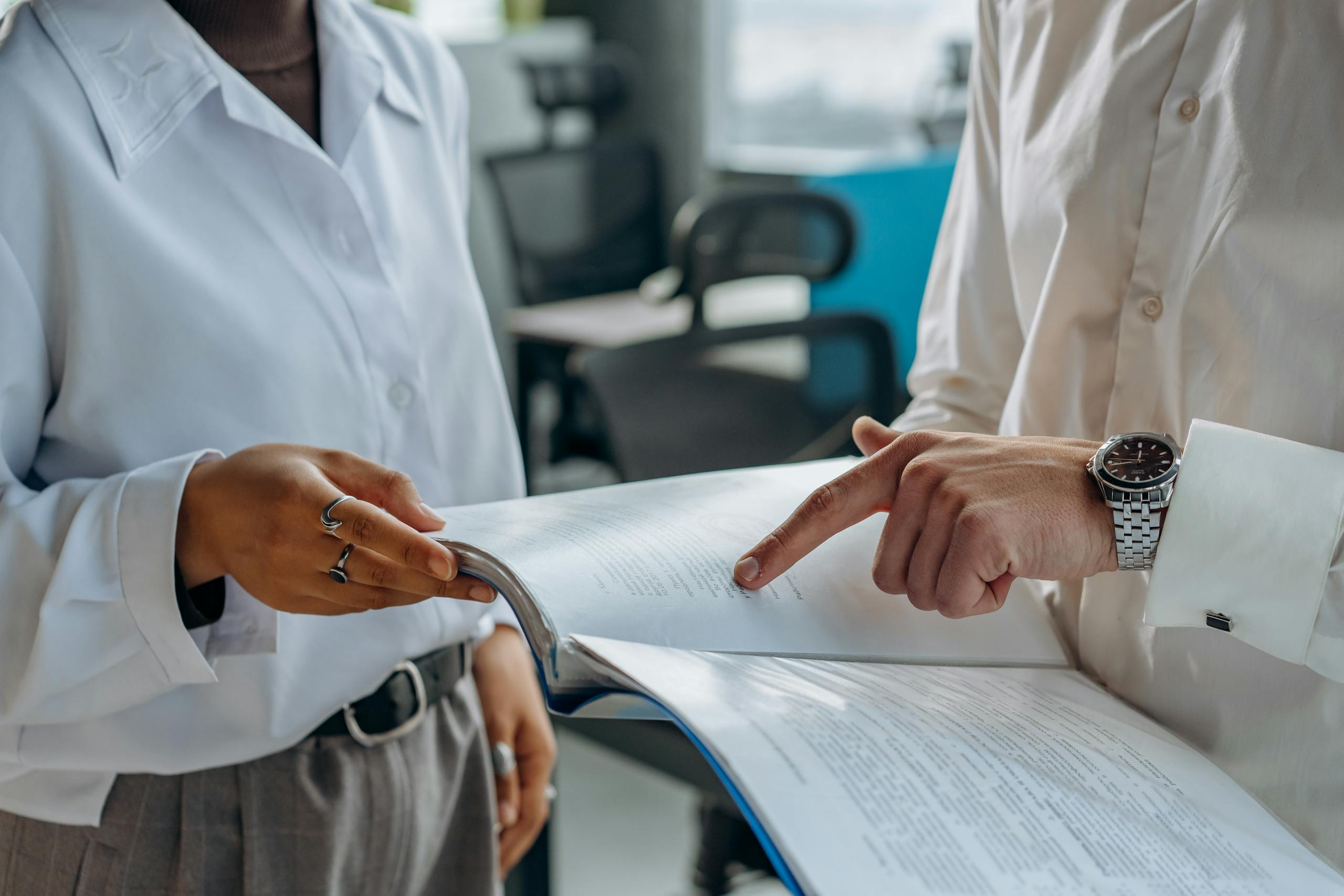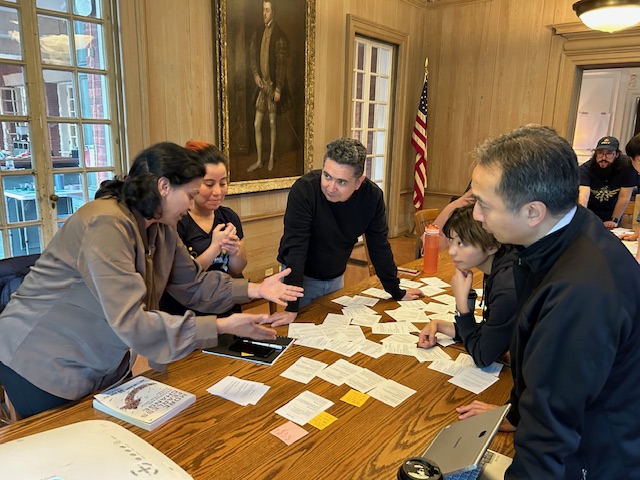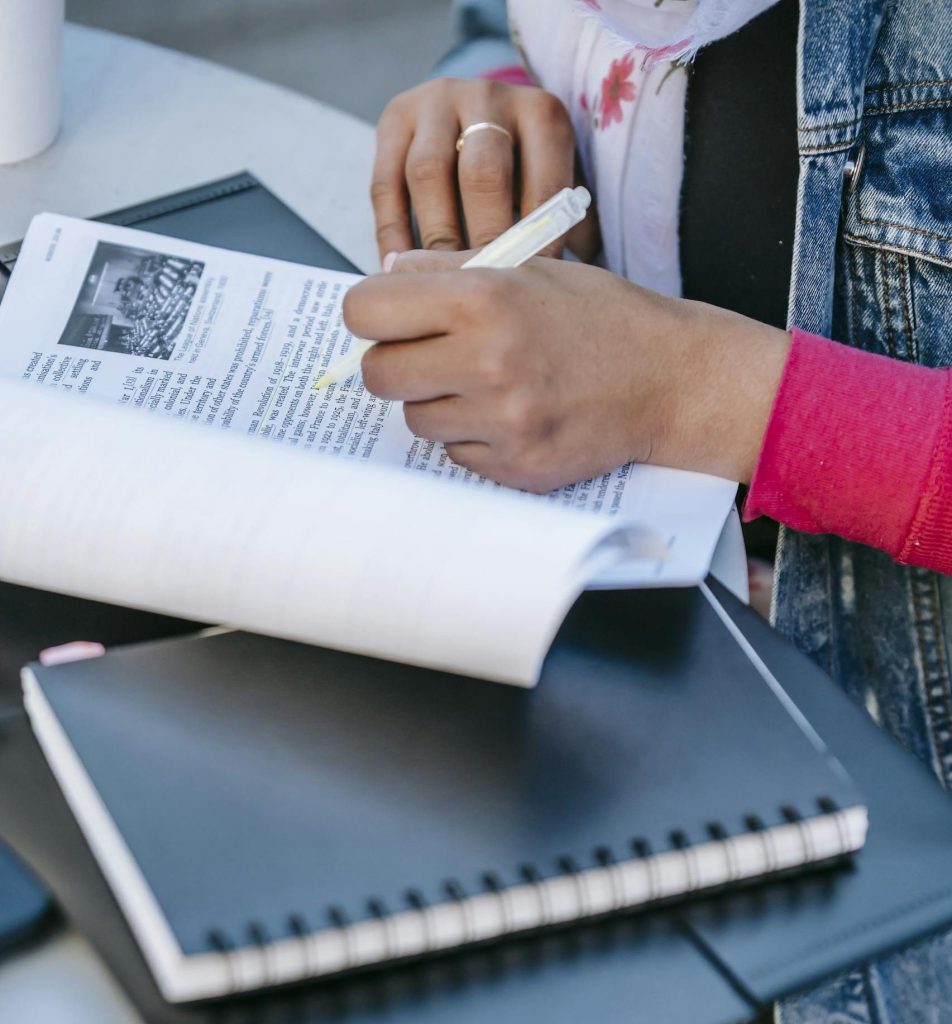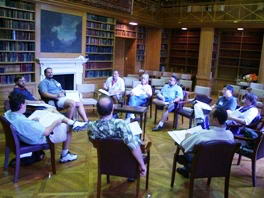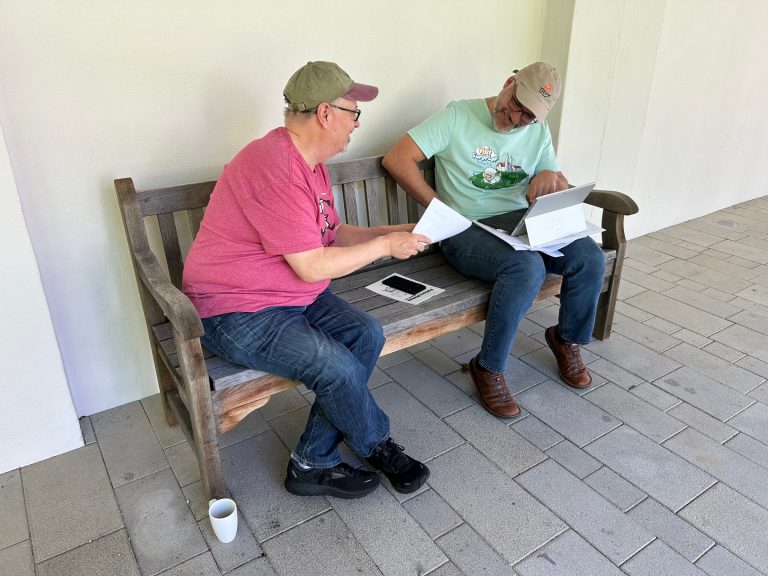Submissions
PLoP 2024
Call for Submissions
PLoP 2024 welcomes paper authors and nonauthors alike. The Pattern Languages of Programs conference (PLoP™) is the premier event for pattern authors and enthusiasts to gather, discuss, and learn more about patterns, design, software development, and the built world in general. Writers’ Workshops offer authors the opportunity to improve their papers. Imagination Run Wild sessions offer everyone, including newcomers, an opportunity to learn about patterns and related topics.
Patterns and pattern languages have expanded to many areas including (but not limited to) art, well-being, learning, psychology, organizational development & change, sociology, and anthropology. PLoP 2024 encourages a variety of submissions regardless of the areas they target.
We are looking forward to receiving your submissions and meeting you!
There are two types of submissions:
The Hillside organization is a nonprofit that does not have funding for PLoP travel, registration, and lodging. All attendees are responsible for these costs.
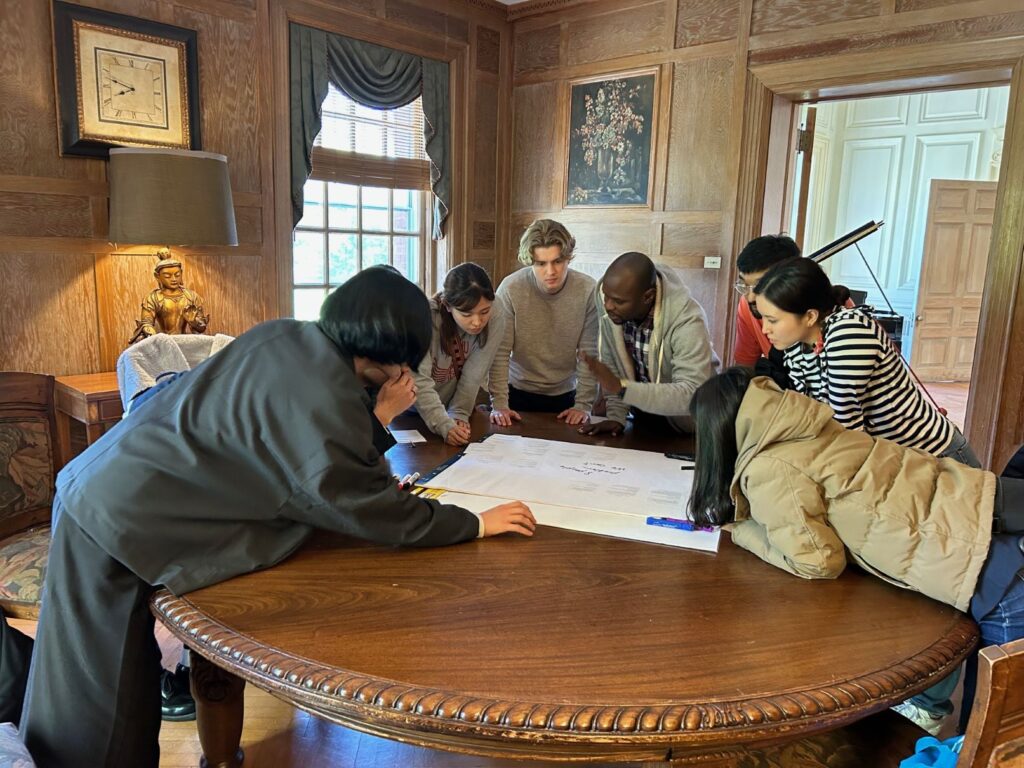

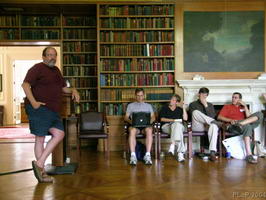
IMAGINATION RUN WILD SUBMISSIONS
We welcome proposals for hour-long presentations that will get all of us thinking as well as 5-minute lightning talks that explore partially formed ideas. Longer sessions may include workshops/focus groups that bring together people interested in exploring a topic. Free format groups may include open spaces or fishbowls. Half-baked ideas could be discussed in a planned or pop-up birds-of-feather.
Let your imagination run wild and propose something! The conference organizers are open to receiving a variety of session types and activities. If you wish to propose an activity that does not fit into any of the formats mentioned in this call, contact MaryLynn Manns, the “Imagination Run Wild” program chair to discuss it.
Some Imagination Run Wild sessions will have their own time slot while others will run concurrently with writers’ workshops. So, there will always be a variety of options for all attendees throughout the conference.
Reports from any of these sessions may be included in the conference proceedings (subject to review).
PAPER SUBMISSIONS
We welcome papers describing patterns and pattern languages, experience reports, essays, empirical evaluations, reflections, etc. After the initial screening by the program committee, you will get the opportunity to improve your paper under the guidance of a dedicated shepherd. If your paper is accepted at the conference, it will be discussed in a writers’ workshop session with other authors and participants. Based on what you learn at writers’ workshops, you will make final improvements to your paper after the conference and submit it for the proceedings.
To enable the paper content to benefit from the shepherding process and the writers’ workshop discussions, please be mindful of the number of pages in your submission. You want to create a paper that allows your shepherd and the writers’ workshop attendees to digest the material and provide meaningful feedback.
If you have any questions about paper submissions, contact Valentino Vranić, the papers program chair.
WHAT’S NEXT?
Paper Submission & Review Process
The papers submitted at PLoP are discussed in Writers’ Workshops, where authors work together to improve their papers. Before papers are accepted for a Writers’ Workshop, they are shepherded. Shepherding is an iterative process, in which an experienced author discusses a submission with an author to refine a paper prior to the conference. All paper submissions are peer-reviewed after shepherding.
This applies to paper submissions only, not the Imagination Run Wild submissions.
There is a three stage paper submission process for the conference:
1

Step 1
Submissions are assessed for suitability and quality by the program committee.
See examples of past Accepted Submissions.
2

Step 2
Each paper found suitable is assigned a shepherd, an experienced (pattern) writer, who helps the author improve the paper. Each paper is also assigned one program committee member to supervise shepherding.
Shepherding involves several iterations, each producing a revision of the paper. Each author and shepherd decide the extent of revision.
3
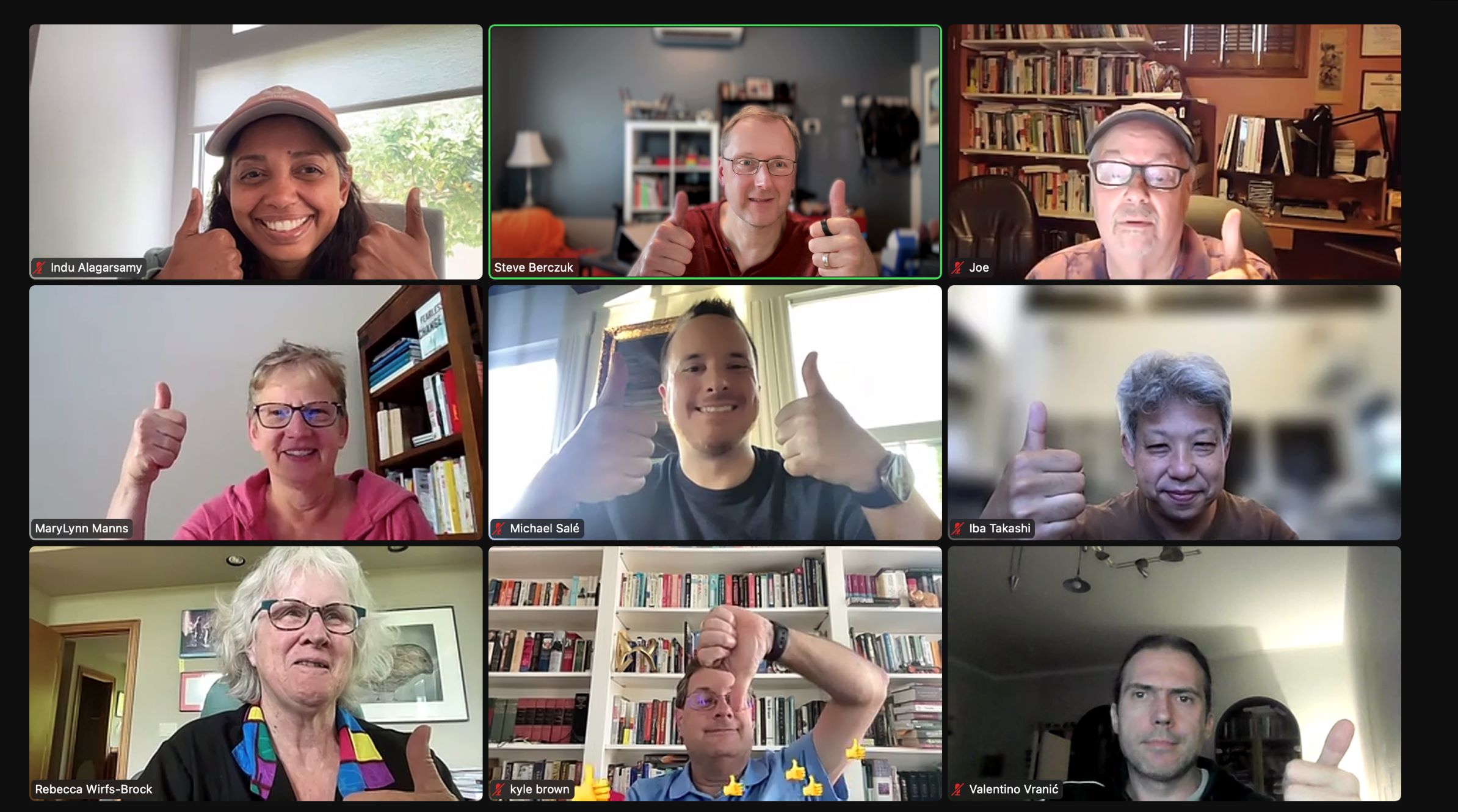
Step 3
After shepherding, each paper is assessed once more by the program committee members and program chairs. The decision to accept a paper takes into account the willingness of the author to consider the comments they received from their shepherd (as reported by the shepherd and program committee member who supervised shepherding).
Writers’ Workshops
At the conference, the papers are discussed in writers’ workshops with groups of paper authors and possibly other conference participants. Authors are expected to take into account comments they received in the writers’ workshops to improve their papers.
At least one of the authors of accepted papers is expected to register for the conference. Failure to do so will result in acceptance being withdrawn.
For more information, view A Pattern Language for Writers’ Workshops by Richard Gabriel.
Shepherding Process
Shepherding is a revision process. Shepherds are experienced writers of patterns, essays, and other pattern-related papers. Each author of a submitted paper is assigned a shepherd who helps the author revise and improve the paper. All shepherds have experience with the shepherding process, either having been a shepherd before or having been helped by a shepherd.
Shepherding is about improving the manuscript. A shepherd can provide detailed reviews, make suggestions for both major and minor improvements, copyedit, or even provide draft material—it all depends on how the author and shepherd decide to work together. Shepherding is done before a paper is peer reviewed by the program committee.
Near the end of the shepherding, shepherds submit their recommendations to the Program Committee, which then decides whether it is accepted to a writers’ workshop of the conference. After a paper has been accepted, its author and shepherd can continue revising the paper to produce the conference draft version.
Richard Gabriel has written a guide to shepherding.
We are looking forward to your submission and meeting you at Skamania.
Welcome to PLoP 2024!
On behalf of PLoP 2024 Program Chairs
MaryLynn Manns & Valentino Vranić

